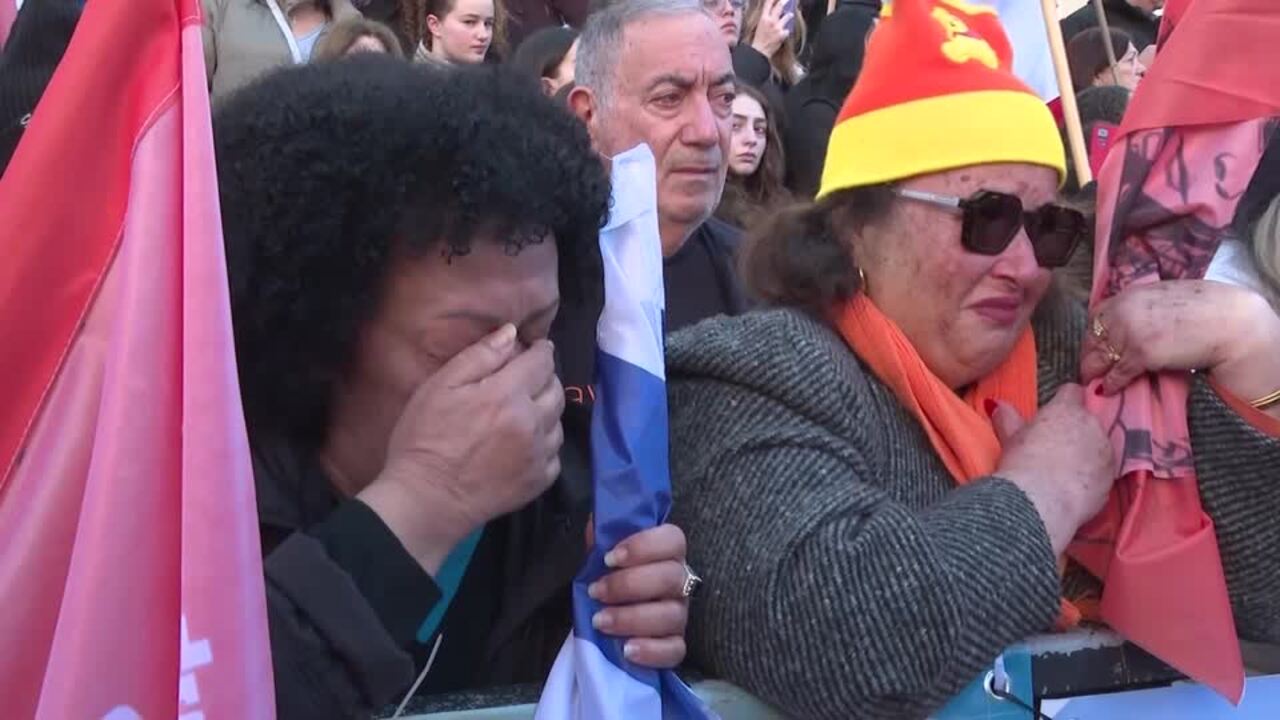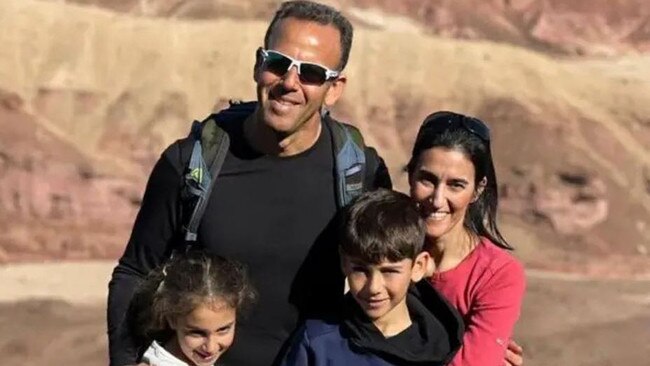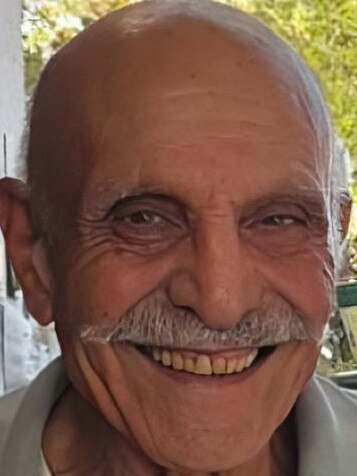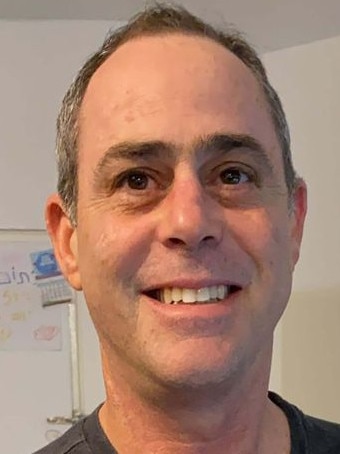Hamas hands over four bodies in last hostage release of ceasefire
Mediators race to secure truce to remain on path to peace and end the Israel-Hamas war.

Hamas handed over what it said were the last four dead hostages included in the first phase of a cease-fire agreement with Israel, mediators said, as they race to extend the fragile truce.
The bodies were transferred to the International Committee of the Red Cross under supervision of Egyptian officials early Thursday local time, mediators said. Officials involved in the talks expected the bodies of Ohad Yahalomi, Shlomo Mantzur, Itzik Elgarat and Tzachi Idan. All four men were kidnapped in the Oct. 7, 2023, Hamas-led attack on Israel that sparked the war in Gaza.
Israel is set to free hundreds of Palestinian prisoners whose release it had held up since last Saturday because it said Hamas was holding humiliating hostage-release ceremonies. The latest bodies were handed over by Hamas without a ceremony.
The bodies were expected to be taken to the National Center of Forensic Medicine in central Israel for forensic examination. The release of the Palestinian prisoners will be conducted in stages, with some prisoners to be released once the identity of the bodies is confirmed by Israel.
The latest exchange would complete both sides’ obligations under the first phase of the cease-fire, during which Hamas has returned 33 Israeli hostages, including eight bodies, in exchange for more than 1,700 Palestinian prisoners.
The exchange marks the final swap in the first stage of a truce that began in January and expires this weekend. What comes next is uncertain. The two sides remain deadlocked over the second stage of the multiphase agreement, which is supposed to lead to a permanent end to the war.

Mediators are currently pushing to extend the first phase of the truce, while putting off thornier issues for later. Negotiations are focused on arranging extra swaps of either dead or living Israeli hostages in exchange for additional Palestinian prisoners, mediators said, but no agreements have yet been reached, raising concerns about a return to the fighting.
Israel has reinforced troops around the Gaza border, signaling that it is serious about returning to the fighting if agreements aren’t reached. Hamas has also used the period of calm to rebuild its battered forces and map out where to send troops in the case of a restart of the fighting, The Wall Street Journal recently reported.
Before Thursday’s release, 62 hostages taken in the Oct. 7 attacks remained in Gaza, more than half of whom Israel says are dead. Hamas is also holding the body of one Israeli soldier killed in the 2014 Gaza war. Many recently returned hostages have spoken about poor conditions in captivity, creating more urgency to free those who remain.
Key disagreements remain between the two sides regarding the second phase of the agreement.


Israeli officials have told Arab mediators that Israel wants to retain an open-ended security role in Gaza, create buffer zones in the north and east of the territory and completely dismantle Hamas’s military capabilities, mediators said. Israel has also told mediators it won’t withdraw from the Philadelphi corridor, a narrow strip of land that borders Egypt.
Most Hamas officials agree that the group is unlikely to survive as ruler in Gaza—proposed plans for who will govern Gaza after the war don’t include a key role for Hamas. But the group’s hard-liners based in the strip want it to remain an armed force that can exert influence behind-the-scenes and potentially return to fighting Israel, mediators said.
“No proposal has been presented to the movement regarding the second phase, despite our readiness and determination to move forward with all stages of the agreement,” Hamas said.
In Washington, US President Donald Trump’s top envoy to the Middle East said Israeli representatives were en route to talks on the next phase of the ceasefire.
“We’re making a lot of progress. Israel is sending a team right now as we speak,” Steve Witkoff told an event for the American Jewish Committee.
“It’s either going to be in Doha or in Cairo, where negotiations will begin again with the Egyptians and the Qataris.”
THE WALL STREET JOURNAL






To join the conversation, please log in. Don't have an account? Register
Join the conversation, you are commenting as Logout